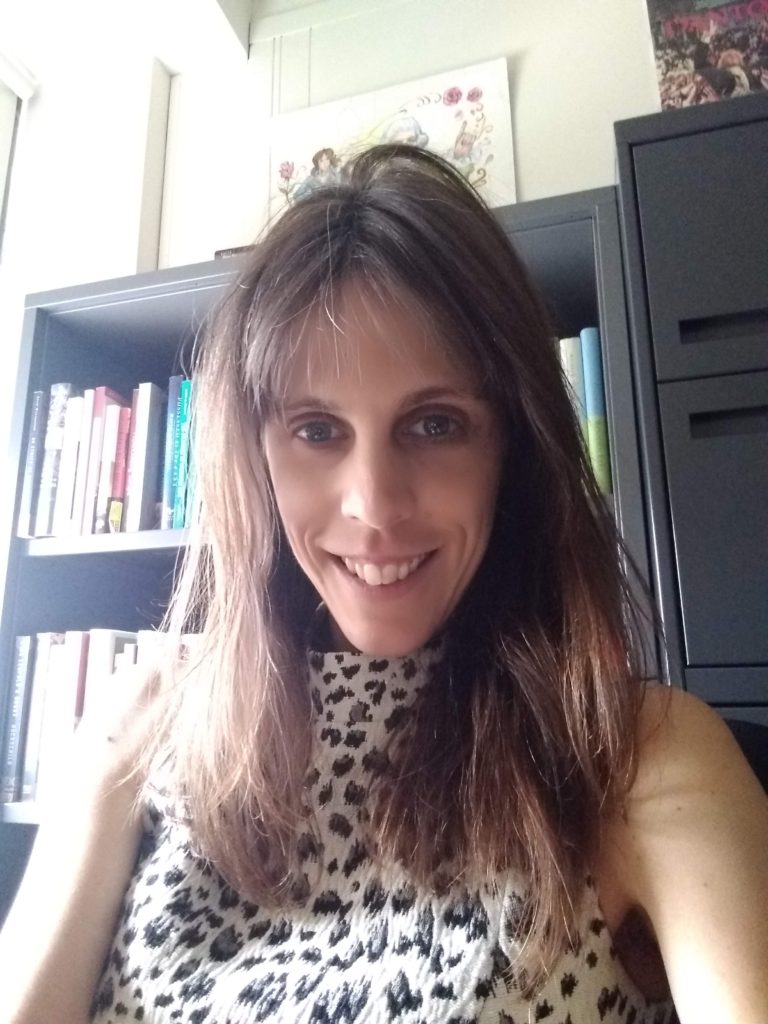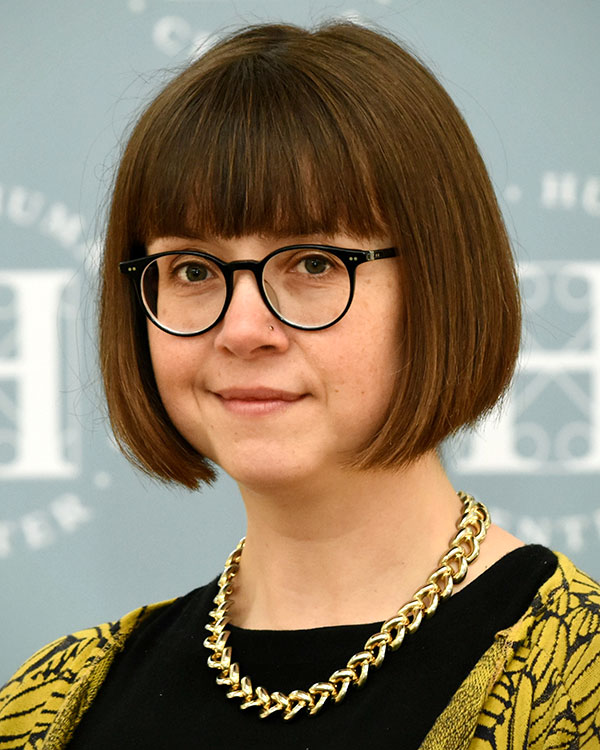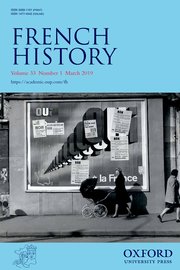We’re pleased to announce the return of Historians Under the Spotlight – an occasional interview series which offers a snapshot from academics’ lives: their passions, interests and reading suggestions. You can catch up with previous posts here.

This month we using the spotlight to highlight not only two excellent historians, Alexia Yates (University of Manchester) and Erika Vause (St. John’s University, New York), but their equally excellent forthcoming French History Special Issue on ‘Modern France and a New History of Capitalism’.
Advanced access to several of the articles is now available via the French History webpage, and the full SI will appear later this month.
In a nutshell, what is your research about?
Erika: I work on the cultural and social history of finance in 19th century France. My past and present work has focused on bankruptcy, debt imprisonment, usury, and insurance
Alexia: I’m a historian of economic life; like Erika, I focus on the cultural and social history of finance in modern France. My first book looked at real estate markets as historical artefacts; I’m now working more on financial markets, from a similar perspective.

What was it that first got you interested in researching French history?
Erika: At age 12, I borrowed Stanley Loomis’s Paris in the Terror from my local library. It was not exactly a flattering (or accurate) account of French history, but it was a dramatic one, and it ignited my interest in the French Revolution. A few years later, in high school, my father and I had constructed a quarter-scale guillotine which I used to behead bananas when I taught a lesson on the Reign of Terror to my AP European History class.
Alexia: I was a much later bloomer than Erika. For me it was a classic story of a terrific university lecturer managing to enrapture me with accounts of how modernity was “invented” in nineteenth-century Paris. A canned narrative that we all go on to undo in our research, sure; but it won me over totally from my undergraduate work on early modern England.

(University of Manchester)
In the length of a Tweet, what is your Special Issue about?
What does France have to do with the history of capitalism? It’s time for historians to bring new methodologies and ambitions to bear on capital’s dynamics in the nineteenth century.
What made you decide to put together a Special Issue on this subject?
Erika: When Alexia and I were doing our PhDs at the University of Chicago, a number of students studying French history started investigating a cluster of questions related to capitalism, initially independently of each other. We thought it would be useful for the field in general to unite some of this work, and bring it into conversation with recent developments in the transnational history of capitalism.
Alexia: We also tried to have a conference on the topic in 2006 or so that didn’t get off the ground – the research terrain has shifted significantly since 2008, and we wanted to make sure modern France was part of this conversation.
What are the main insights you hope people will take away from the SI?
Erika: Thinking about capitalism, and particularly thinking about capitalism in the way conceived by the New History of Capitalism – with its emphasis on finance, state action, unfree and semi-free labor and global connections, is a tremendously fruitful way of engaging with 19th century French history. Moreover, the work of French historians, particularly scholars of the 18th century, has anticipated the New History of Capitalism in their world. This new understanding of economic development helps explode the lingering legacy of the “dual revolutions” to situate France within a broad transnational history of capitalism.
Alexia: The issue really makes an effort to bring insights from different historiographic schools to bear on one another. I’d emphasize Erika’s comment about where French history has run ahead of and parallel to the New History of Capitalism and add that we hope particular questions – as well as the field’s typically greater theoretical agility – feeds outward.

What new thing(s) did you learn in the course of putting together the SI?
Erika: One thing I learned was the importance of really thinking through what you need each contributor’s piece to add to a particular project so that each unique article contributes to the volume’s overall intellectual agenda.
Alexia: We gave really careful thought to what the introduction to the special issue should do. We considered ‘genres’ of introductions (states of the field; rallying cry; denunciation of past approaches…) and came to realize that it was important that this introduction act as an invitation for further research, not as a statement of a bounded approach. I suppose you could say that I came to think hard about and appreciate anew the importance of tone in presenting a particular scholarly take.
What advice would you give to other people contemplating guest editing a SI?
Erika: Having the ability for participants and editors to meet and discuss drafts of their contributions is very valuable for everyone involved. We were lucky enough to have funding from the University of Manchester and support from the Centre for History and Economics to hold a meeting not only with our contributors but also from leading scholars (David Todd and Nicolas Delalande). I think this really helped everyone think of the journal as a coherent project as well as strengthened individual pieces. Meeting in person seems ideal, but something similar could be reached through videoconference and the remote exchange of drafts.
Alexia: Find a co-editor. Even at the basic level of formulating the issue, working with someone else helps broaden the vision and push the agenda in new directions. It expands the networks of contacts for contributors. All the better if they’re ruthlessly efficient.
What have you found most rewarding and most frustrating about your career to date?
Erika: Teaching is definitely the most rewarding aspect of my career, but, also uniquely challenging. I spend a lot of time thinking how I can best reach university students who have no real interest in history – for instance, the students in my survey classes – and convince them of the importance of assessing and interpreting information and understanding the value of the past.
Alexia: I love the opportunities for mentoring that an academic career provides – listening and offering guidance, writing letters of recommendation and advocating for students as they move along different paths. Similarly, I find community building among researchers to be really rewarding – I love connecting people to each other and seeing collaborations form. The challenges of moving between jobs and having to knit some of those networks over again (or learn entirely new ones) are significant.
What one change would you most like to see in Academia in the next five years?
Erika: Ideally, I’d like to see the elimination, or at least the extreme reduction, of precarious and adjunct labor upon which academia increasingly relies and which has such a negative impact on scholarship, teaching, and the lives of contingent faculty themselves. Unfortunately, particularly in the aftermath of COVID-19, I am very pessimistic about this possibility. More practically, for US institutions (and, by analogy, those elsewhere), I wish to for universities to abandon adherence to the US News & World Reports rankings as a guide to institutional priorities, or for these rankings to consider more “pro-social” and less destructive measures of a university’s success.
Alexia: Amen. I’d add: the elimination of tuition fees and proper public funding for universities. (Clearly we are both concerned with our radical credentials, as editors of a special issue on capitalism.)
What are you working on now/next?
Erika: I am currently working on two projects: the first involves usury and moneylending in the post-Revolutionary period, and the other concerns insurance across the nineteenth century.
Alexia: I’m revising a short book on real estate in global urban history, and starting work in earnest on my AHRC-funded project on the culture and politics of finance in nineteenth-century France.
QUICK FIRE QUESTIONS
(1) What French place/space would you most like to be able to go to right now?
Erika: The banks of the Seine, with wine, cheese, and friends.
Alexia: The Canal St-Martin.
(2) Favourite archive or library?
Erika: For the material therein: the Préfecture de Police de Paris. For the atmosphere: Bibliothèque historique de la Ville de Paris.
Alexia: For the materials and conception, the Archives Nationales du Monde du Travail. (Loses points for other reasons: Looking at you, hand-written request forms.)
(3) Favourite century?
Erika: The Sattlezeit, but don’t make me pick sides.
Alexia: The nineteenth. But, um, not for living in.

(4) Èclair or saucisson?
Erika: Èclair. I’m a big fan of pastries in all their delightful, sugary forms
Alexia: Always dessert.


